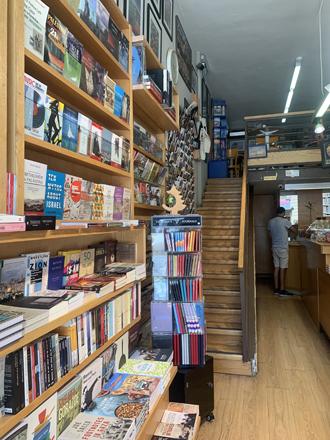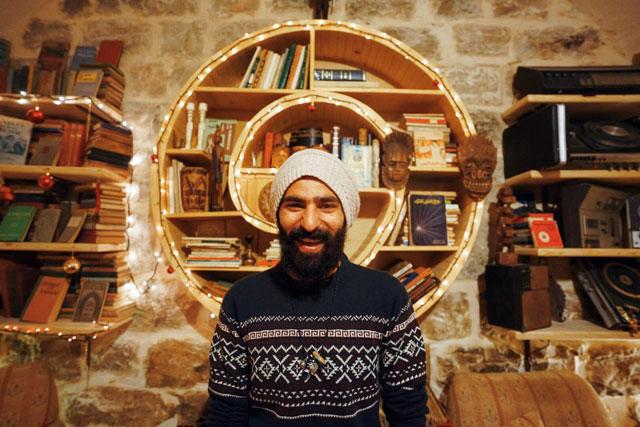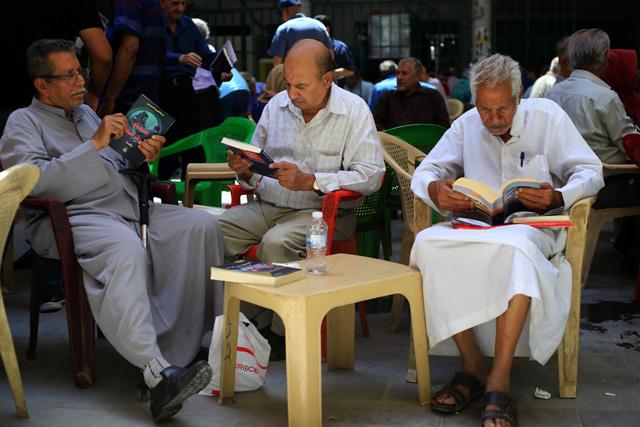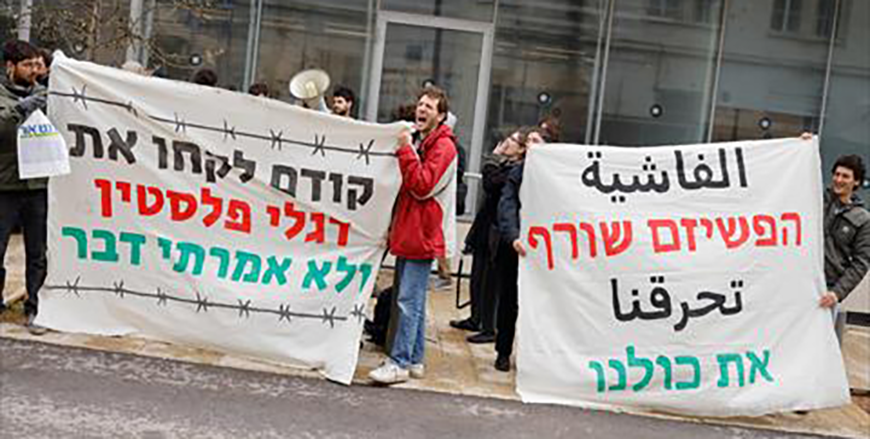You are here
The Educational Bookshop passes on Palestine’s message to the world
By Tanya Raghu - Aug 10,2023 - Last updated at Aug 10,2023

The shelves of The Educational Bookshop in Occupied Jerusalem (Photo by Tanya Raghu)
OCCUPIED JERUSALEM — An unassuming bookshop sits at its centre of the bustle and chatter of Salah ed-Din Street in East Jerusalem, with its contents exclusively dedicated to titles about the Palestinian-Israeli conflict and its mission to bear witness to the very history it survives to explain.
Established as a humble stationery shop, The Educational Bookshop has now expanded to include two more branches, including a book shop and café across the street, and a shop at the American Colony Hotel three blocks down the road.
Purchased by Ahmad Muna in 1984, the successful enterprise now spans three generations.
When the First Intifada broke out in 1987 after 20 years of occupation, the streets of East Jerusalem were swept in revolution, and the political uprising attracted the interest of the outside world. Major news agencies established bureaus and United Nations agencies increased their presence.
At this moment, Imad, Ahmad Muna’s son, saw an opportunity for the business. He looked to sell English books about the history of Palestine to the humanitarian workers, journalists and diplomats who were now flooding the city and eager to learn more. However, at that time, resources about the conflict were scarce.
“They started to ask for materials, like books, and at that time I only had Arabic books, but, quickly, I thought I need to bring good material for these people, because first of all, business-wise there is demand for these types of books, and, secondly, we want to show our story. It is important,” Imad told The Jordan Times. “We are in a revolution, and that means the world has to know the history of the occupation.”
Slowly, Arabic books on the shelves were replaced with English ones.
Imad began by venturing to the Israeli side where he would look for the addresses of publishers to order copies for the bookshop. Then, through book fairs, publishers, authors and clients, he started to learn more about the prominent authors writing about this issue.
Throughout the 39 years of the shop’s history, Imad can only recount a handful of times the Israeli government gave him issues on importing books as “they only have censorship on Arabic books”.
While business was going steady, Imad was inspired by the European-style cafés he saw abroad.
“It was my dream, at that time, to do it here in Jerusalem,” Imad said.
However, just as the family thought of opening a new branch with a bookshop and café, the Second Intifada broke out in 2000. Due to the risk, the family waited until 2005 to open the doors of their second branch.
As Imad’s business grew, so did his family. Today, his youngest brother Mahmud and son, Ahmed, serve as managers in both locations.
However, the next generation will have to succeed in a digital world where book, magazine and newspaper sales have dramatically decreased over the past decades.
“Bookstores should not limit themselves in 2023 to just books,” Mahmoud said. “They should be masters of inner places and that way they reestablish their place in society as an important intellectual and cultural hub.”
Finally, in 2014, through an agreement with the American Colony Hotel, it became home to the bookshop’s third location. Today, The Educational Bookshop’s stock list includes more than 1,400 titles and ships to customers worldwide. The majority of the books focus on history, politics, literature and historical fiction written by Palestinian, Israeli and international authors.
“We have stuck to this collection and we have a challenge everyday that we continue to say that any book about Palestine you will find in this bookshop,” Ahmad, the bookshop manager, said.
As the door swings open and closed with local and foreign customers stopping in for a coffee, browsing the book selection, or selecting souvenirs, business continues every day of the week.
“We started as a business, but always in our minds, it is not only a business,” Imad said. “It is a business because it is feeding us, we live from it, but we are very happy to distribute information. We are an important source about Palestine and passing a message.”
Related Articles
AMMAN — Selling books might not be the path applauded by society, yet according to entrepreneur Ghaith Bahdousheh, there is more of courage
BAGHDAD, Iraq — When Maher Abu Hissam started his Baghdad bookshop two decades ago he was selling up to 40 books a day, such was the hunger
OCCUPIED JERUSALEM — Dozens of people gathered Monday outside a Jerusalem court to protest the arrest of two Palestinian booksellers in the

















